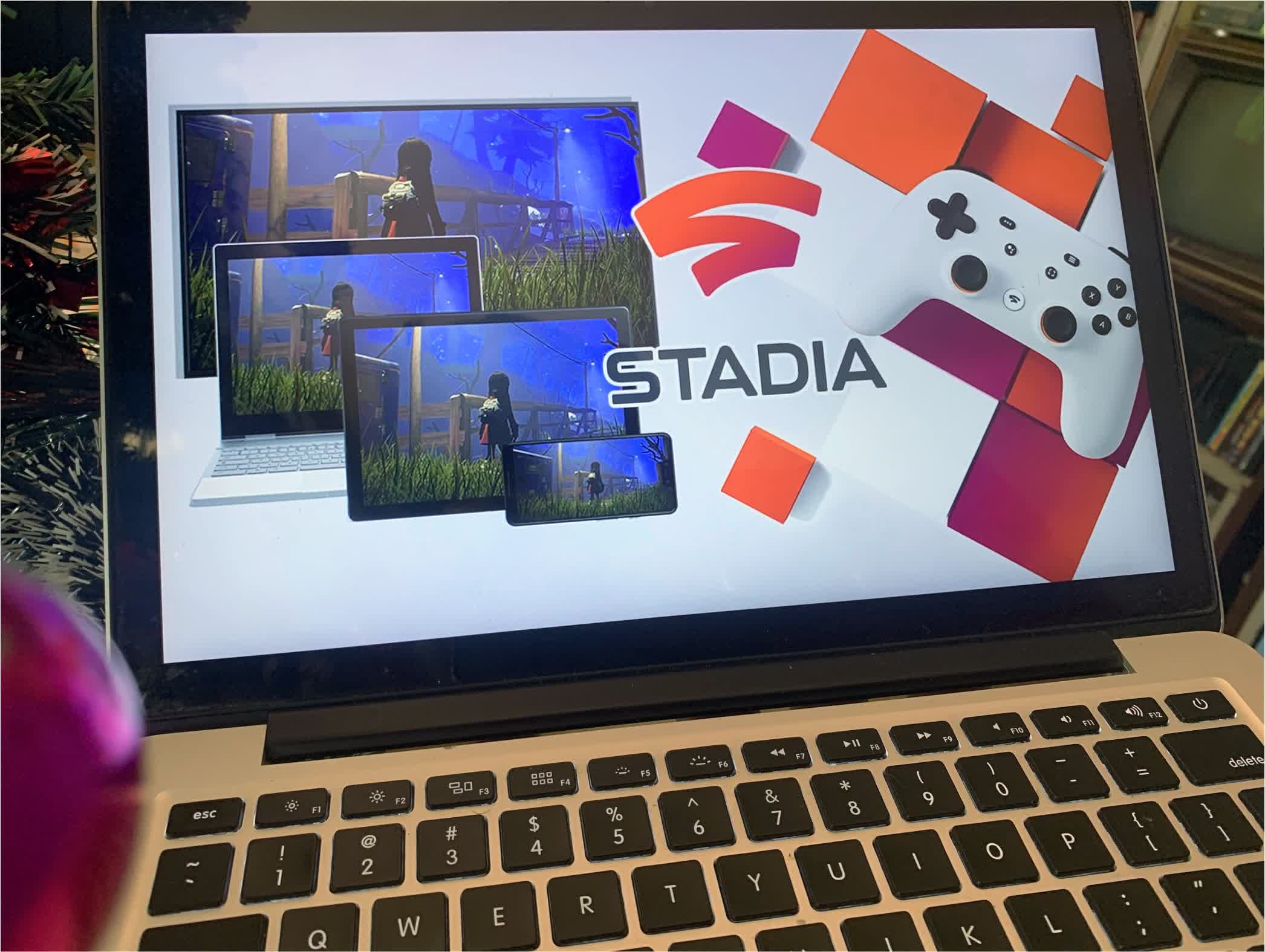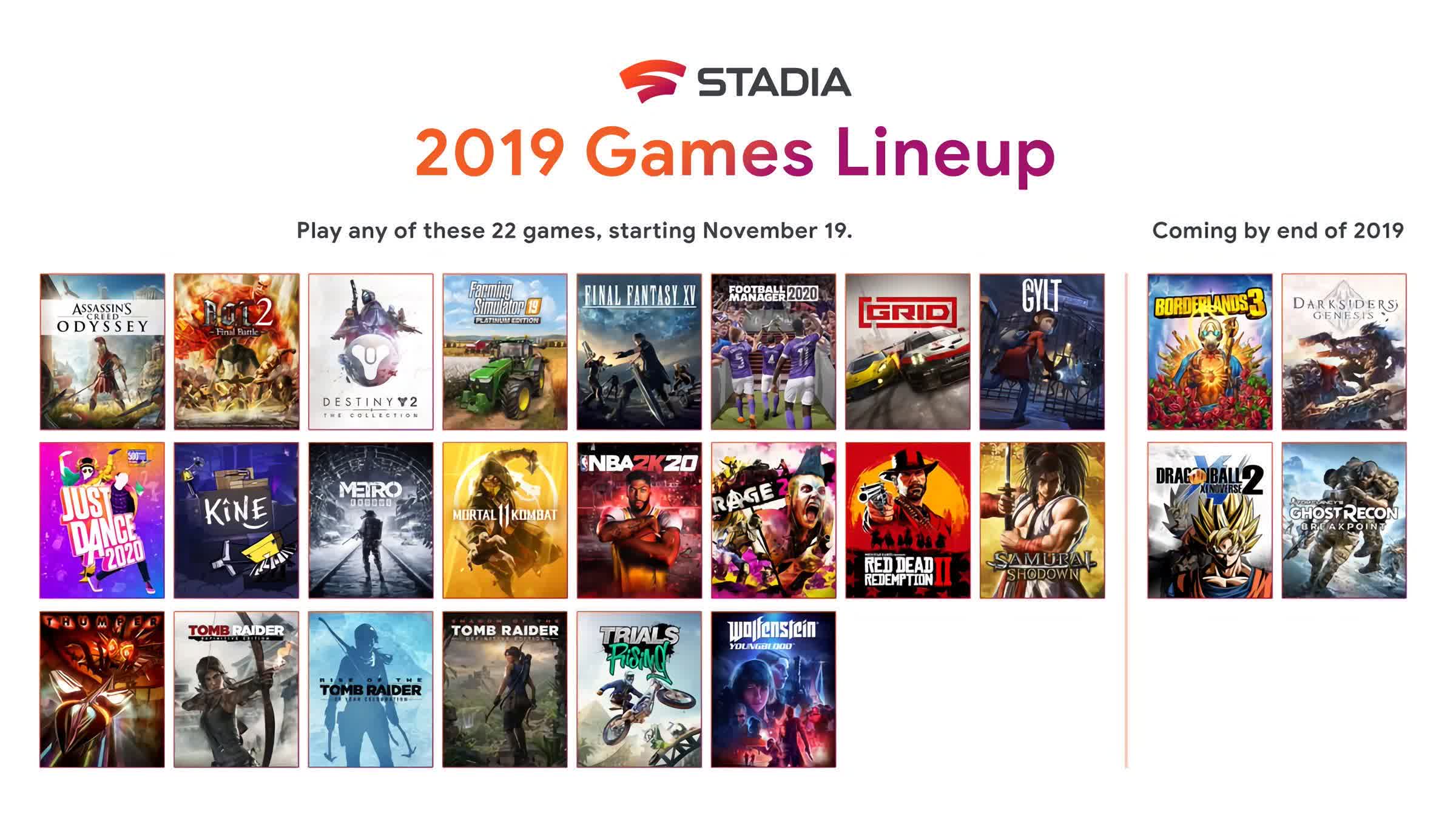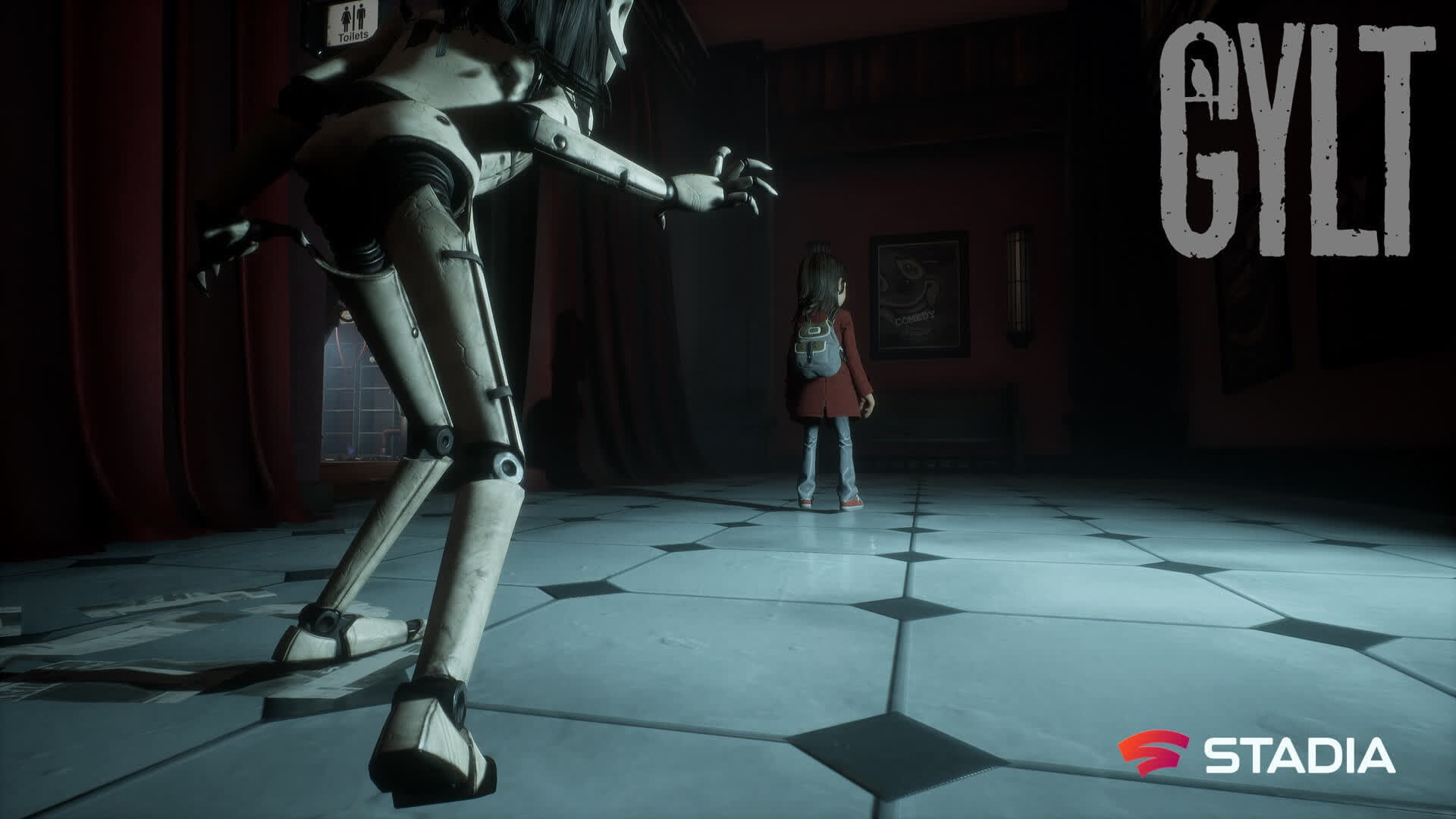Insiders say Google lacked the focus and discipline to run a successful game studio
In context: Office of what led to Stadia Games and Entertainment division's early demise is the underwhelming number of subscribers the platform managed to garner since November 2022. Although Google has not posted official numbers, Bloomberg quotes insiders stating Stadia missed controller sales and monthly active user count goals "past hundreds of thousands." The depression adoption rates may exist attributed to how the platform was marketed and released. This is arguably the biggest waste matter of money and resources in Google's history.
Stadia bankrupt from Google'southward typical "start small and build" philosophy of production development. Different other Google products with long beta cycles, like Gmail, it was marketed and hyped as a full service that was gear up to kill off consoles. Stadia caput Phil Harrison said it was "the future of gaming." Speaking with anonymous sources, including former employees of the at present-defunct development house, Bloomberg and Wired uncovered some details surrounding what was going on leading upwards to the closure.
Harrison is a veteran of console gaming, having served every bit an executive at both PlayStation and Xbox. While many in the Stadia squad knew the platform was not ready to accept on console gaming, Harrison was not dissuaded and "positioned Stadia as a traditional gaming platform total of bells and whistles."
Take-Ii CEO Strauss Zelnick said Google "overpromised" with Stadia. "The launch of Stadia has been slow," Zelnick stated terminal June. "I think in that location was some overpromising on what the technology could deliver and some consumer thwarting as a result."
Harrison's console-like approach affected the overall Stadia business concern model. For example, it required the $130 Founder'south Edition controller bundle to have some way to offer pre-orders. Panel makers generally use pre-order sales to grease the cogs of assembly lines and become initial product shipments out the door. This was not necessary in Stadia's case since just almost whatever controller will piece of work with the service, and Chromecast dongles were already well into their production cycle.
The subscription model also led many to believe early on that the service would operate much like Netflix with an all-you-can-play experience for one monthly fee. As it turned out, the subscription covered only a handful of games. At every bit much as $lx per title, Stadia's other offerings were no cheaper than buying a title elsewhere. Equally a result, potential users did not see the point to pay on top of the subscription, particularly when they already owned some of the same titles on consoles or PC.

However, lack of user interest was not the merely thing troubling SG&E. One-time and current Stadia employees speaking with Wired indicated that Google might have been ill-equipped in both leadership and resource to operate a game studio. "After pouring tens of millions of dollars into 2 game studios, Google couldn't stomach the expensive and complicated creative process necessary to build high-quotient video games—especially considering Stadia's unremarkable subscription numbers," said the anonymous employees.
Google had already spent millions of dollars enticing third-political party developers to release games on Stadia but knew it needed exclusive content to concenter users to the platform. According to the insiders, this drive to create games for the sake of the organization was the crux of the trouble. The employees expressed that "Google wasn't funding games to sell games; information technology was funding games to sell Stadia."
To that end, it opened Stadia Games and Amusement, hiring scores of workers and scooping upwards Typhoon Games along the manner. Google lured veteran designers with the hope of a more than relaxed work environment without the "crunch" and worry of layoffs. It also hired industry vet and founder of Ubisoft Toronto Jade Raymond to head up the sectionalization, so what could go wrong? Apparently, a lot.

For one, Google's ambition was to release AAA Stadia exclusives, simply didn't have the existing talent for creating such content in time for launch.
"Google is really an engineering and applied science business," said 1 source fortunate enough to still be employed with Stadia. "Making content—information technology requires types of roles that don't typically be at Google." So the company went on a hiring frenzy, just its selection process was cumbersome, taking upwards to ix months to corroborate a new hire. The sources say it was hoping to rent at least 2,000 employees within five years. This goal became achievable after streamlining its hiring process to one more structured to game designers rather than software engineers.
However, afterwards joining the fold, developers encountered a work environment not conducive to producing games. For example, three of Wired's sources confirmed that Google disallowed crucial game development tools because of "security" reasons. Another hurdle was Google's insistence of putting Stadia features higher up gameplay features.
"For a long time, the mandate for games included requirements to espouse the Stadia-specific mentality, then, similar, taking reward of features meant specifically for Stadia," said one of the insiders. Despite the desire to launch Stadia with first-party exclusives, existence late to the game, throwing up evolution barriers, and having unrealistic expectations of development times, Google was forced to face up the hard truth that it would not have anything new to offering when the platform debuted other than the indie title Gylt.
This shortfall did not seem to dampen Google'due south commitment to developing exclusive in-firm content. It continued hiring and had actually accumulated a decent stable of talent. However, the pandemic hit in early 2022, and by Apr, Stadia had announced a hiring freeze. As the pandemic stretched into 2022, the company became acutely enlightened of how AAA development costs could ramp up, and suddenly the prospect of in-business firm exclusives became much less bonny.

"I retrieve it's a lack of understanding of the process," said an insider. "It seemed in that location were executive-level people non fully grasping how to navigate through a infinite that is highly creative [and] cross-disciplinary." In other words, Google had bitten off more than than it could chew. Despite upper direction coming to this conclusion, they led developers to believe everything was still status quo as far every bit SG&E was concerned.
On January 27, Phil Harrison issued an electronic mail containing the "high-level platform budget and investment envelope" for 2022. In it, he also mentioned that SG&E "had made great progress building a diverse and talented squad and establishing a strong line upwards of Stadia exclusive games" and noted that the division's upkeep was forthcoming. Withal, he was apparently just blowing fume.
Google has no intentions of abandoning the Stadia platform
Just days later, coinciding with the launch of SG&E's only completed projection, Journey to the Savage Planet, Google announced it was closing its studios. Information technology promised employees with relevant skills would be placed elsewhere in the visitor, just well-nigh of the 150 game designers were laid off. Wired'southward sources said that the studio'southward closure was not that surprising considering the inner turmoil, but the fact that it came so shut to Harrison'south praise of the division and the launch of its just game was somewhat shocking.
At this point, Google has no intentions of abandoning the Stadia platform. There are several competing services from the likes of Nvidia, Sony, Microsoft, and others who want on the ground floor of cloud gaming. So information technology would be premature to pull out this early— subsequently all, Sony has been trying to perfect PlayStation Now for over half dozen years. However, if what Stadia leakers say is truthful, Google might want to reassess how it markets and runs a service that still has nevertheless to prove itself.
Epitome credit: Colleen Michaels, Daniel Constante
Source: https://www.techspot.com/news/88765-insiders-google-lacked-focus-discipline-run-successful-game.html
Posted by: arellanothavent.blogspot.com


0 Response to "Insiders say Google lacked the focus and discipline to run a successful game studio"
Post a Comment